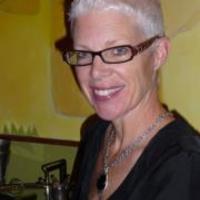Research Interests:
Research Interests:
Research Interests:
Research Interests:
Research Interests:
Research Interests:
Page 334. Normalization versus Diversity: Lesbian Identity and Organizing in Sweden and Canada BECKI L ROSS AND CATHARINA LANDSTROM ABSTRACT In both Canada and Sweden, lesbians experience heterosexism ...
Research Interests:
Research Interests:
Research Interests:
Research Interests:
Research Interests:
Research Interests:
Research Interests:
Research Interests:
Research Interests:
Research Interests:
... 19-45; Wendy Mitchinson, "Early Women's Organizations and Social Reform: Prelude to the Welfare State," in The Benevolent State: The ... Sexuality in Postwar America," in Not June Cleaver: Gender and History in... more
... 19-45; Wendy Mitchinson, "Early Women's Organizations and Social Reform: Prelude to the Welfare State," in The Benevolent State: The ... Sexuality in Postwar America," in Not June Cleaver: Gender and History in Postwar America, 1945-1960, ed. Joanne Meyerowitz (New York ...
Research Interests:
Research Interests:
Research Interests:
Research Interests:
Research Interests:
Research Interests:
Research Interests:
Research Interests:
Research Interests:
In the mid-1970s, indoor sex workers were pushed outdoors onto the streets of Vancouver’s emergent gay West End, where a small stroll had operated for several years. While some gay activists contemplated solidarity with diversely gendered... more
In the mid-1970s, indoor sex workers were pushed outdoors onto the streets of Vancouver’s emergent gay West End, where a small stroll had operated for several years. While some gay activists contemplated solidarity with diversely gendered and racialized sex workers, others galvanized a campaign, alongside business owners, realtors, police, city councillors, and politicians to expel prostitution from their largely white, middle-class enclave. Sex workers commanded inadequate capital to thwart the anti-vice, neo-liberal lobby. Instead, an assimilationist, homonormative gay politics played out on the backs of an even more vulnerable and stigmatized sexual minority – the majority of whom were low-income, street-involved women, men, and male-to-female (MTF) transsexuals of colour.
Research Interests:
... Nena Marlene, interview with Becki Ross, Vancouver, British Columbia, 27 February 2002. ... On the image of glamour constructed by and for white elite figure skaters Sonja Henie, Barbara Ann Scott, and Janet Lynn, see Michelle... more
... Nena Marlene, interview with Becki Ross, Vancouver, British Columbia, 27 February 2002. ... On the image of glamour constructed by and for white elite figure skaters Sonja Henie, Barbara Ann Scott, and Janet Lynn, see Michelle Kaufman, "Gaining an Edge," in Nike is a Goddess ...
Research Interests:
... Becki Ross ... Undaunted by the familiarity of feeling marginal, this new wave of largely white, middle-class, urban and college-educated lesbian feminists set out to wrestle the category 'lesbian'... more
... Becki Ross ... Undaunted by the familiarity of feeling marginal, this new wave of largely white, middle-class, urban and college-educated lesbian feminists set out to wrestle the category 'lesbian' away from the heterosexist consensus of sin, sickness and criminality. ...
Research Interests:
... Contact: becki@interchange.ubc.ca. ... To date, I have had the privilege of tape-recording interviews, ranging from two to four hours, with 19 former dancers (14 White, 5 non-White), 7 musicians, 4 former club owners, 1 choreographer,... more
... Contact: becki@interchange.ubc.ca. ... To date, I have had the privilege of tape-recording interviews, ranging from two to four hours, with 19 former dancers (14 White, 5 non-White), 7 musicians, 4 former club owners, 1 choreographer, 3 former booking agents, 3 journalists, 5 ...
Research Interests:
Research Interests:
Research Interests:
Research Interests:
This paper focuses on Street Haven, a drop-in centre that opened in Toronto, Ontario in 1965 to service female ex-offenders and street women, the majority of whom were gay, drug users, and prostitutes. Interviews and archival materials... more
This paper focuses on Street Haven, a drop-in centre that opened in Toronto, Ontario in 1965 to service female ex-offenders and street women, the majority of whom were gay, drug users, and prostitutes. Interviews and archival materials reveal how white, middle-class. Haven volunteers endeavoured to improve the lives of "the girls" in the interests of "normal" womanhood. At the same time, stories told by volunteers complicate notions of societal norms unilaterally imposed by Christian "do-gooders" on "deviant" subjects.
Research Interests: Sociology and Delinquency
For more than a century, prostitution in Vancouver, British Columbia has been at the centre of legal and political debate, policing, media coverage, and policy-making. From 1975 to 1985, a heterogeneous, pimp-free community of sex workers... more
For more than a century, prostitution in Vancouver, British Columbia has been at the centre of legal and political debate, policing, media coverage, and policy-making. From 1975 to 1985, a heterogeneous, pimp-free community of sex workers lived and worked on and around Davie Street in the city’s emerging ‘gay’ West End. Their presence sparked a vigorous backlash, including vigilante action, from multiple stake-holders intent on transforming the port town into a ‘world class city’ and venerable host of the World’s Fair, ‘Expo 1986’. In this article, drawing from interviews and archival material, I examine the abolitionist strategies adopted by Vancouver’s residents’ groups, business owners, politicians, and police to criminalize street solicitation and evacuate prostitutes who, in small numbers, ‘whorganized’ to fight back. The collective disavowal of sex workers as citizens was premised on the ‘cleansing’ of the zone under siege, which became whitened and made safe for bourgeois (queer) capitalism, with lethal consequences for outdoor sex workers in the city.
